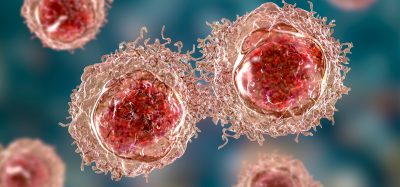TSRI scientists win $2.2 million to expand study of IP6K1 to help develop new obesity therapies
Posted: 28 May 2015 | Victoria White
TSRI scientists have been awarded nearly $2.2 million to advance understanding of IP6K1 and develop innovative approaches for the treatment of obesity…

Scientists from The Scripps Research Institute (TSRI) have been awarded nearly $2.2 million by the National Institute of Diabetes and Digestive and Kidney Diseases of the National Institutes of Health (NIH) to advance an innovative approach to the treatment of obesity.
Obesity, especially when combined with type 2 diabetes, leads to conditions including coronary heart disease, stroke, hypercholesterolemia, fatty liver, sleep apnea, osteoarthritis, certain cancers and various other diseases. The estimated cost of obesity in the US alone is already $305.1 billion annually.
In an effort to address this dilemma, scientists want to identify relevant proteins, especially enzymes, to target with new and more effective drug candidates.
“Anti-obesity drugs generally work on reducing how much you eat or absorb,” said Anutosh Chakraborty, a TSRI assistant professor and principal investigator of the new five-year project. “We investigate the problem from a different perspective.”
Abnormal regulation of IP6K1 leads to obesity and insulin resistance
Chakraborty and his colleagues discovered that an enzyme called inositol hexakisphosphate kinase-1 (IP6K1) plays a significant role in promoting the action of insulin on energy/fat storage. Mice without IP6K1 are not only lean on regular chow diet, they are also protected against high-fat-diet-induced obesity and insulin resistance.
“IP6K1 knockout mice eat a similar amount of food, yet are lean as they efficiently expend the extra energy,” he said. “For us, that means that IP6K1 is the regulating factor when it comes to energy storage. Conversely, abnormal regulation of IP6K1 leads to obesity and insulin resistance. The new grant will allow us to identify the underlying mechanisms of how it works.”
In addition to gaining a broader understanding of the fundamental mechanism by which IP6K1 regulates metabolism, Chakraborty and his colleagues—including Scripps Florida’s Ted Kamenecka, assistant professor and associate scientific director of the Translational Research Institute, and Michael Cameron, associate professor of molecular therapeutics and DMPK—are working on the development of drugs which are expected to treat obesity, type 2 diabetes and other metabolic diseases via IP6K1 inhibition.
Related topics
Enzymes
Related conditions
Diabetes, Heart disease, Kidney disease, Obesity
Related organisations
The Scripps Research Institute (TSRI)






